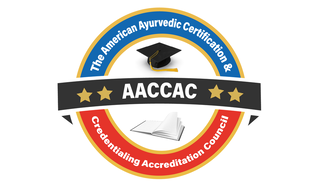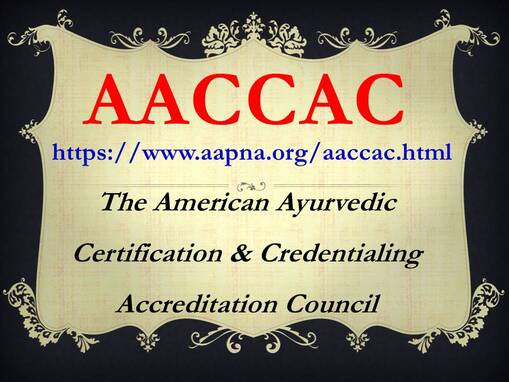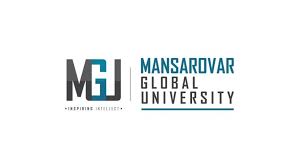Managing DirectorShekhar Annambhotla
BAMS, MD (Ayu), LMT, RMAS, ERYT-500, CPH, CEH, CRH, FAAPNA Pennsylvania, USA Email: [email protected] [email protected] |
Click to set custom HTML
FAQ (Frequently Asked Questions)
What is accreditation?
"Accreditation is the independent, third-party evaluation of a conformity assessment body against recognized standards, conveying formal demonstration of its impartiality and competence to carry out specific conformity assessment tasks". (Wikipedia)
Accreditation is the recognition from an accrediting agency that an institution maintains a certain level of educational standards.
What does being accredited mean?
Accreditation is the recognition from an accrediting agency that an institution maintains a certain level of educational standards.
What is a accreditation certificate?
Accreditation is used to verify that laboratories have an appropriate quality management system and can properly perform certain test methods (e.g., ANSI, ASTM, and ISO test methods) and calibration parameters according to their scopes of accreditation.
What is proof of accreditation?
Proof of accreditation means a statement of affiliation status, a certificate of accreditation, or formal notification from a recognized accreditation agency as accepted by the Department.
What is accreditation and why is it important?
Accreditation is a voluntary activity initiated by the institution. It requires a rigorous self-evaluation and an independent, objective peer appraisal of the overall educational quality. Accreditation emphasizes quality assurance and a commitment to continuous quality enhancement.
The goal of accreditation is to ensure that institutions of higher education meet acceptable levels of quality. Accreditation in the United States involves non-governmental entities (accrediting organizations) as well as federal and state government agencies (these three entities are formally known as the Triad).
What are the types of accreditation?
There are three main types of accreditation: national, regional, and specialized accreditation that apply to certain academic programs.
What are the Benefits of Accreditation?
Provides formal recognition by peers, both within the institution and across the world encourages planning, identifies areas for change, and provides substantial information that can be used to support resource decisions.
What's the purpose of accreditation?
Accreditation in higher education is a collegial process based on self and peer assessment. Its purpose is the improvement of academic quality and public accountability. This continuing quality control process occurs usually every five to ten years.
Accreditation Criteria:
There are ten (10) criteria (areas) that are used in the assessment of programs:
1.Mission, goals and objectives
2.Faculty
3.Curriculum and Instruction
4.Students
5.Research
6.Extension and Community Involvement
7.Library
8.Physical Facilities
9.Laboratories
10.Administration
Stages of Accreditation:
The accreditation process passes through different stages/activities:
Application - an educational institution files its application to undergo accreditation with AACCAC (The American Ayurvedic Certification and Credentialing Accreditation Council).
Institutional Self-survey - upon approval of the application, the applicant institution will be required to make an internal assessment by its internal accreditors to determine the program's readiness for external review.
Preliminary Survey Visit- the evaluation of the program for the first time by external accreditors. Passing the assessment entitles the program to be awarded a Candidate status valid for two (2) years.
1st (Formal) Survey Visit- the evaluation of the program which has attained Candidate status, and if it has attained a higher level of quality, is awarded a Level I Accredited status, good for three (3) years.
2nd Survey Visit- involves the evaluation of an accredited program, and if it has passed the standards set at a higher level of quality than the immediately preceding survey visit, may qualify the program to an award of Level II Re-accredited status, good for five (5) years.
3rd Survey Visit- the accreditation stage conducted after a program has enjoyed a Level II Re-accredited status for five (5) years. Passing a higher level standard of quality entitles the program to apply for Level III. The program is then evaluated and must excel in four (4) areas, namely: 1) instruction and 2) extension, which are mandatory; and two (2) more areas to be chosen from among research, performance in licensure examination, faculty development, and linkages.
4th Survey Visit- is a higher level which if hurdled, may entitle the institution to an institutional accreditation status.
Our Meetings
July 18, 2022 - Executive Council Meeting conducted at 4:00 pm = 5:00 pm (EST)

























